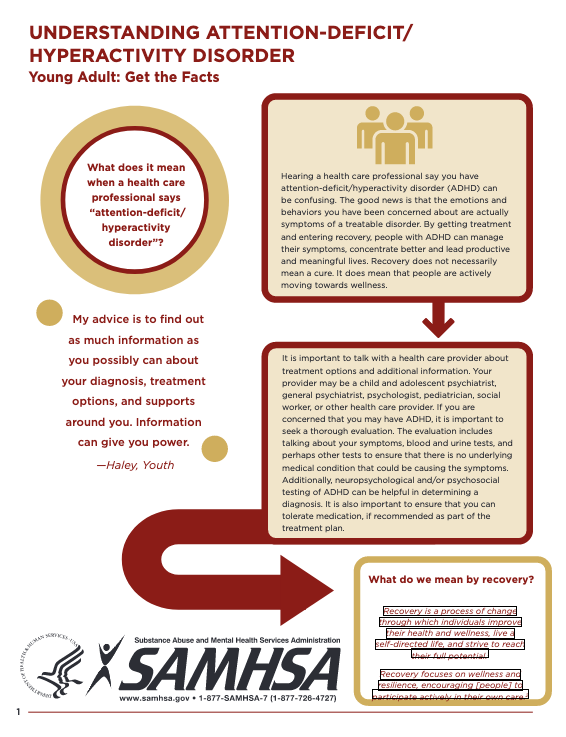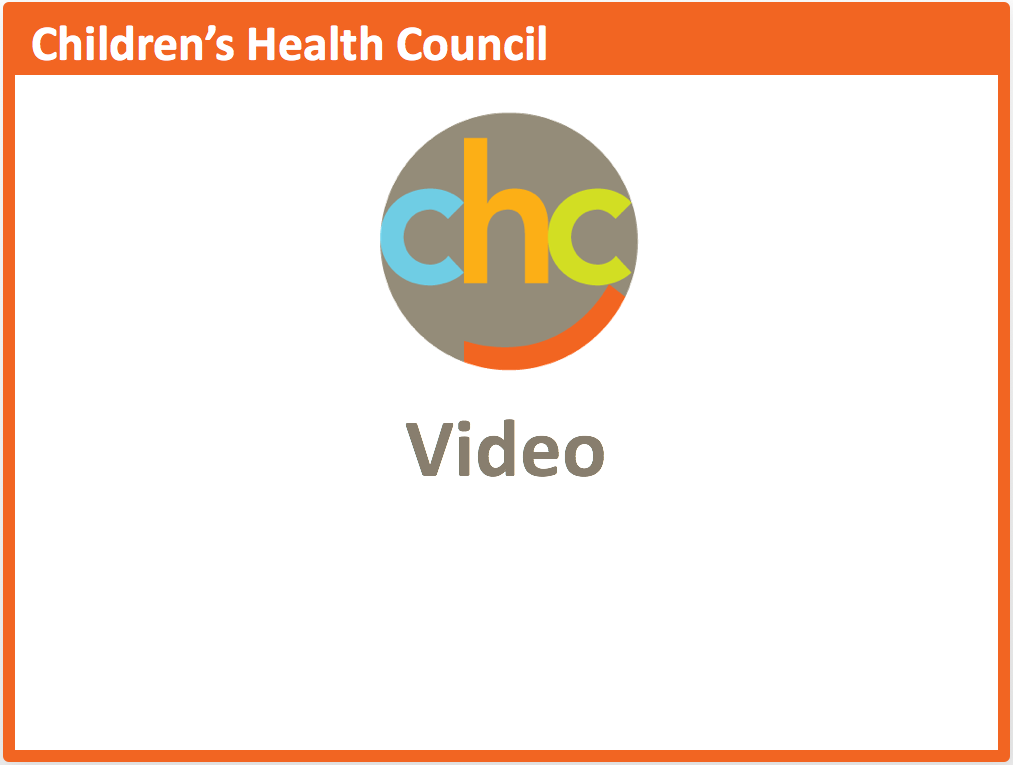 Hearing a health care professional say you have attention-deficit/hyperactivity disorder (ADHD) can be confusing. The good news is that the emotions and behaviors you have been concerned about are actually symptoms of a treatable disorder. By getting treatment and entering recovery, people with ADHD can manage their symptoms, concentrate better and lead productive and meaningful lives. Recovery does not necessarily mean a cure. It does mean that people are actively moving towards wellness.
Hearing a health care professional say you have attention-deficit/hyperactivity disorder (ADHD) can be confusing. The good news is that the emotions and behaviors you have been concerned about are actually symptoms of a treatable disorder. By getting treatment and entering recovery, people with ADHD can manage their symptoms, concentrate better and lead productive and meaningful lives. Recovery does not necessarily mean a cure. It does mean that people are actively moving towards wellness.
It is important to talk with a health care provider about treatment options and additional information. Your provider may be a child and adolescent psychiatrist, general psychiatrist, psychologist, pediatrician, social worker, or other health care provider. If you are concerned that you may have ADHD, it is important to seek a thorough evaluation. The evaluation includes talking about your symptoms, blood and urine tests, and perhaps other tests to ensure that there is no underlying medical condition that could be causing the symptoms. Additionally, neuropsychological and/or psychosocial testing of ADHD can be helpful in determining a diagnosis. It is also important to ensure that you can tolerate medication, if recommended as part of the treatment plan.
ADHD is marked by a persistent pattern of inattentive and/or hyperactive and impulsive behavior. These behaviors interfere with day-to-day activities in school, at work, or in social situations. A person with ADHD may have a hard time paying attention, following instructions, organizing and carrying out complex activities.
You might lose things, be forgetful, be easily distracted, and have a feeling of being “driven.” Some people with ADHD are hyperactive— symptoms of this include difficulty waiting or taking turns, fidgeting or squirming, always “on the go,” and not being able to sit still. The diagnosis of ADHD can be made in older youth and adults. However, for the diagnosis of ADHD, symptoms must have appeared prior to age 12.
What is ADHD?
ADHD is typically an ongoing disorder. In adolescence and adulthood, the hyperactive symptoms will diminish but the organizational and attentional challenges will persist. However,treatment that involves medications and other elements of a an individualized treatment program can help you to be more resilient, manage the disorder, improve your everyday functioning, and achieve your personal goals. An individualized treatment program can include positive family and peer support or specialized educational programming.
What caused this?
Researchers and health care professionals do not completely understand what causes ADHD. It is unlikely that a single factor causes ADHD. It is most likely caused by a combination of things such as genetics (i.e. a family history of ADHD), chemical or other changes in the brain, and/or environmental factors. Traumatic experiences can also contribute to the development of psychiatric disorders. If you have experienced a traumatic incident, it is critical to share that information with your mental health specialist and pediatrician.
What are the treatment approaches?
ADHD can be managed in many ways. This includes the use of behavioral therapy, or with a combination of medication, behavioral therapy, and support from family and friends. If you are of consenting age, you may need to provide written consent for parents or caregivers to participate on the treatment team. It is important to talk to your health care providers about other types of treatment, such as complementary medicine, as well as programs that can provide additional support related to education, employment, housing, and vocation and career development. It is also important to have good self-care, such as a healthy diet, exercise, sleep, and abstinence from illicit drugs. You should collaborate with your family and with your health care providers to consider treatment options. Decisions should be made that fit your own priorities and goals.
Medications
Medications can help manage many of the symptoms of ADHD. Stimulant medications are the most common treatment for ADHD. Each person reacts differently to these medications. For that reason, the prescribing health care professional may try different doses and different kinds of medication before finding the most effective approach for you. Finding the best medication and the most effective dose may take time. For some people who have mild symptoms of ADHD, the health care professional may not need to prescribe medication.
Therapy
Health care professionals may recommend behavioral therapy, or training to help your parents learn ways to support you, as stand alone treatment or in combination with medications. Therapy can give you tools to better help you manage your symptoms, and to organize, schedule, and manage your family obligations, work and social life.
Support
Your family or peers that have managed similar challenges can be an important part of your treatment team for ADHD. Talking with peers lets you learn from others who are further along in recovery. If invited to be a part of your treatment team, these individuals can help you recognize ADHD-related behaviors before they become a problem. These partners can provide valuable support and encouragement, so you can stay focused on your recovery and life goals.
It is important to tell your health care provider(s) about all of your symptoms, such as any particular fears, your feelings in social situations, or persistent/worsening low mood that may be bothering you. Be sure to report any problems or habit changes to your prescriber, including any use of drugs or medications, smoking, excessive caffeine (e.g., energy drinks), or alcohol. Self-medicating yourself with alcohol or drugs can complicate your treatment and make your symptoms worse. If you have thoughts or plans to harm yourself or others, contact your prescriber or the National Suicide Prevention Lifeline, 1-800-273-TALK (8255) or via the web chat function at http://www.suicidepreventionlifeline.org immediately.
Download a fact sheet with this information.








